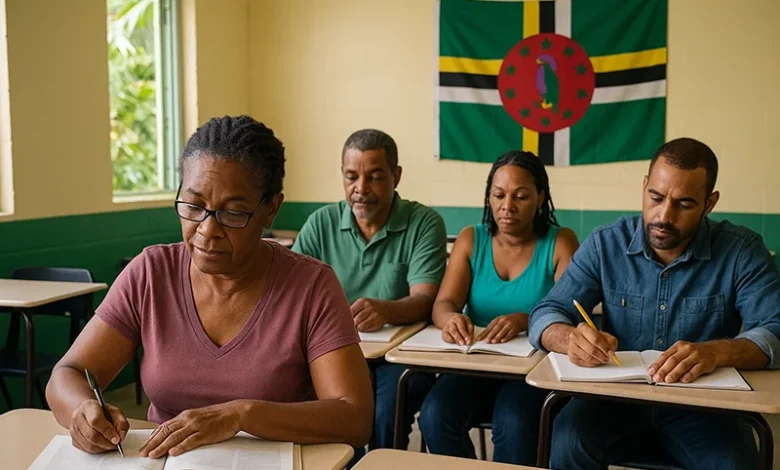Adult Education in Dominica

Adult Education in Dominica plays a pivotal role in national development by offering continued learning opportunities to individuals outside the formal school system. Designed to empower adults with knowledge, skills, and qualifications, the sector supports both personal advancement and community resilience in a changing socio-economic landscape.
Historical Development and Policy Framework
Adult education in Dominica has its roots in post-colonial educational reform. Early efforts focused on literacy campaigns and basic skills training through church groups and village councils. By the 1970s and 1980s, the government began formalizing adult education structures, integrating it into broader national planning.
Today, adult education falls under the jurisdiction of the Ministry of Education, Human Resource Planning, Vocational Training and National Excellence. It is guided by frameworks that emphasize equity, inclusiveness, and lifelong learning, aligned with regional priorities set by organizations like the Caribbean Examinations Council (CXC) and the OECS Education Sector Strategy.
Core Areas of Adult Education
Dominica’s adult education offerings span several key areas:
- Basic Literacy and Numeracy: These foundational programs serve adults who never acquired formal schooling or who exited early. Courses are typically offered at community resource centres or through outreach programs led by Adult Education Officers.
- Secondary Equivalency: Programs such as the General Educational Development (GED) and Caribbean Secondary Education Certificate (CSEC) allow adult learners to obtain qualifications equivalent to high school diplomas. These certificates increase employability and access to further education.
- Vocational and Technical Skills: Many adult education initiatives incorporate hands-on training in areas such as agro-processing, construction, hospitality, and sewing. These are often facilitated in partnership with institutions like the Dominica Youth Business Trust or local NGOs.
- Civic and Community Education: Workshops on financial literacy, parenting, disaster preparedness, and environmental conservation help adults engage more actively in their communities.
Delivery and Accessibility
Instruction is provided through adult education centres located in various districts, including Grand Bay, Portsmouth, Marigot, and Roseau. These centres are supported by the Adult Education Division, which deploys trained facilitators and monitors program outcomes. Some offerings are also integrated into evening classes at secondary schools or through mobile education services in remote villages.
To improve access, programs are often free or heavily subsidized, especially for unemployed or low-income individuals. In recent years, digital platforms have also been introduced to support blended learning, particularly following the COVID-19 pandemic.
Community Impact and Lifelong Learning
Adult education in Dominica is deeply embedded in community development. It enables older adults to gain confidence and independence, helps young mothers re-enter the education system, and equips unemployed youth with pathways to productive employment. In post-disaster contexts, such as the recovery period after Hurricane Maria, adult education initiatives were key in reskilling and rebuilding livelihoods.
Furthermore, the sector contributes to a lifelong learning culture, encouraging citizens to remain engaged in learning throughout their lives. The rise in adult learners pursuing CXC subjects, computer skills, or entrepreneurship training demonstrates a growing demand for flexible, practical education options.
Challenges and Aspirations
Despite its successes, the adult education system in Dominica faces ongoing challenges, including limited staffing, outdated facilities, and uneven program coverage across the island. There is also a need for more structured accreditation systems and better tracking of learning outcomes.
Nevertheless, government policy continues to prioritise adult learning as a tool for social equity and sustainable development. With increased investment, broader public awareness, and continued partnerships with civil society and international agencies, adult education in Dominica is poised to evolve further, creating new opportunities for individuals and communities alike.




